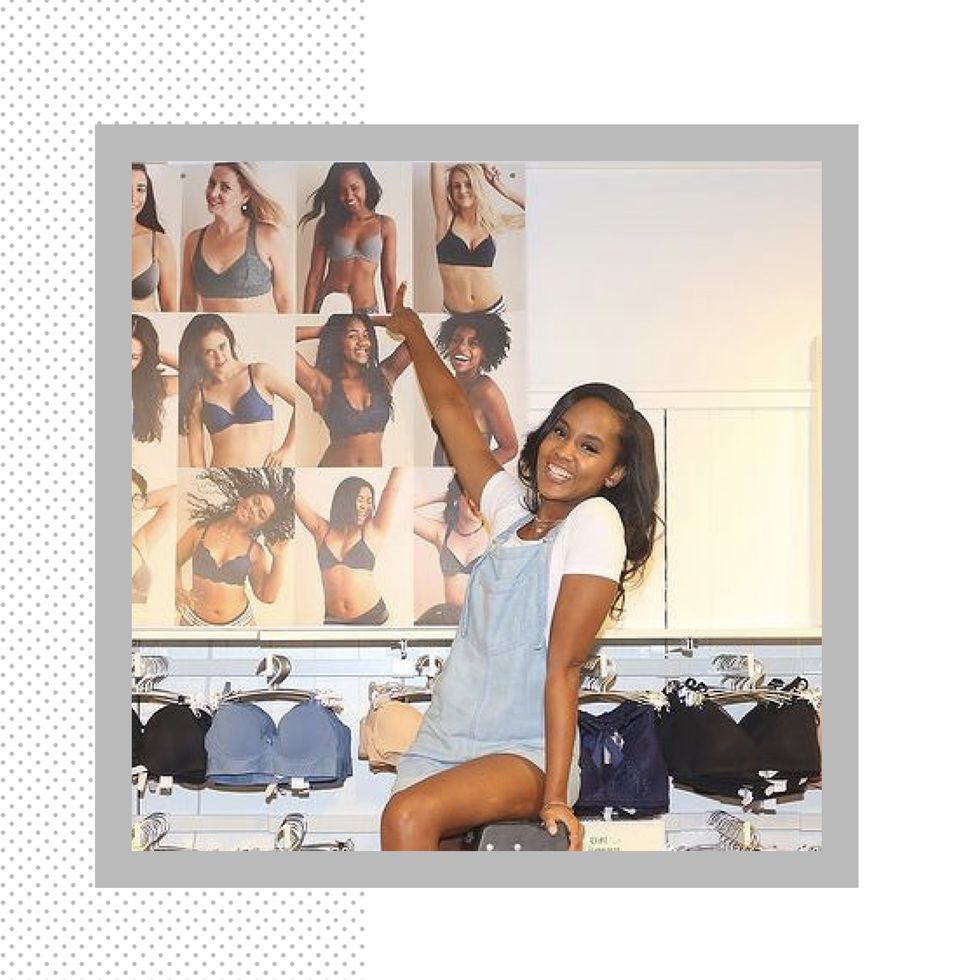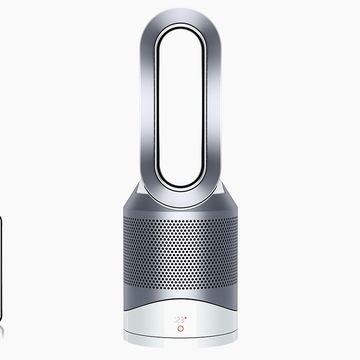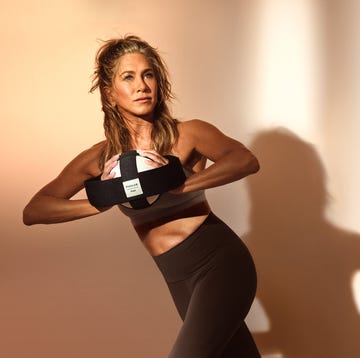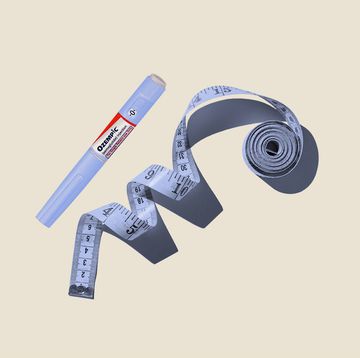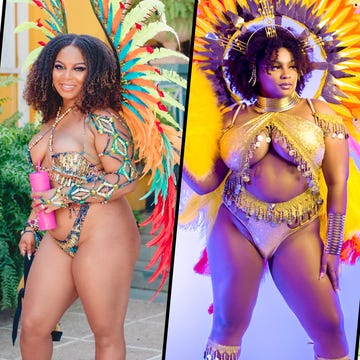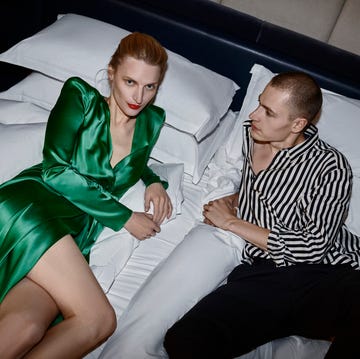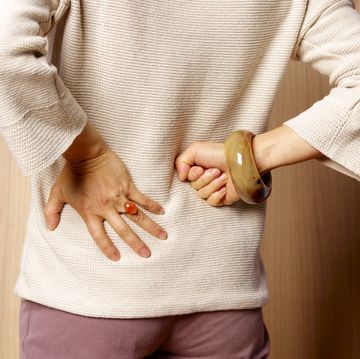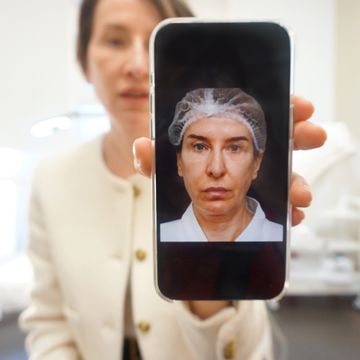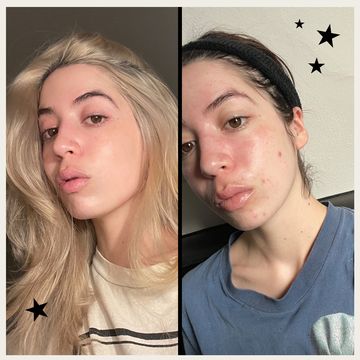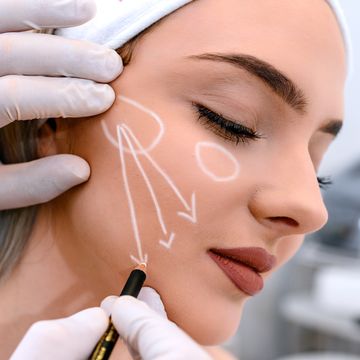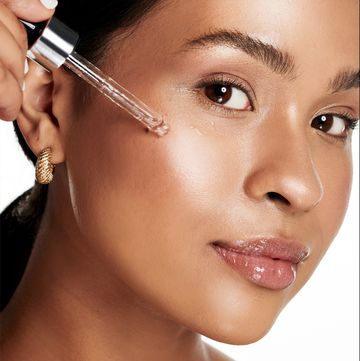My road to a Crohn’s diagnosis started when I was 13. I had always wanted to model, but I was sick so often—experiencing chronic loose stool and using the bathroom often—that I didn’t think it was a possibility for me. My pediatrician immediately referred me to a gastroenterologist, and because my symptoms were so severe, I was diagnosed quickly with Crohn’s disease, an inflammatory bowel disease and causes symptoms like diarrhea, constipation, and abdominal cramps. The body’s immune system also goes into overdrive and attacks healthy bacteria in the GI tract, which causes long-term damage that affects your overall health and quality of life. I was just 14. While I didn’t realize it at first, any hope of a normal high school experience quickly went down the drain.
Struggling with my new reality
After learning I had Crohn’s, I didn’t take in the magnitude of what my diagnosis would mean for me long-term. As a teenager, I was just embarrassed about my symptoms—no one wants to be using the school bathroom all the time. The steroids I was prescribed for my condition didn’t help things either. They caused something called “moon face,” a side effect that caused my face to become swollen and puffy, rendering me unrecognizable to my friends and teachers.
Then there were the surgeries. Throughout my teens, I had countless procedures to remove and repair damaged and inflamed tissue from my colon and intestine. I still had dreams of modeling, but at that point, I thought there would never be a chance because I felt the opposite of beautiful.
Throughout college, I bounced in and out of the hospital with Crohn’s related health issues. My doctors felt having a colectomy and an ileostomy was the best path forward for me, but it was the last thing I wanted to do. Moving forward with these procedures would mean having my entire colon and rectum removed. When you no longer have these body parts, the small intestine is moved to the surface of the abdomen, where it’s sutured to the skin to create an artificial permanent opening called a stoma. An ostomy bag, which is basically a small pouch, attaches to the stoma to collect waste. So, instead of going to the bathroom to defecate, my poop would collect in an ostomy bag attached to my waist until I could empty it in the toilet.
I viewed the surgery as a negative—something gross and nasty. I knew I needed it, but I thought, Will anyone ever think I’m beautiful after that? Will anyone ever love me? It didn’t seem like I would have any shot at modeling, nor at finding love, and it would be a permanent decision.
Getting the help I so desperately needed
But by 21, my symptoms worsened. I went ahead with the colectomy surgery, making a permanent ileostomy and use of the external bag. Immediately after, even while I was still in the hospital, I felt so much better. I had hope again! I couldn’t believe I went that long being in pain unnecessarily, just because of the stigma.
I knew that if I had seen someone who looked like me with an ostomy when I was a young woman, it could’ve changed the course of my life. Perhaps modeling might be in the cards, I allowed myself to hope.
Finding my confidence
One day, I was baking cookies at a friend’s house when we saw Aerie’s open call for real women to model. My friend helped me create a quick submission video, and a month later I got an email from Aerie telling me I was selected to be featured in their 2018 fall bra campaign! I read it and didn’t scream, didn’t cry—I was honestly in total shock. It didn’t even sink in that it was real until later that day when I told my sister. She screamed in excitement and said, “This is huge!” At that moment, I got really excited because I understood the magnitude of what this campaign meant and how very special it would be.
The first time I saw the ad I posed for, I was in an Aerie store with my little brother. There I was, ostomy bag and all, stretched proudly across the store wall. I started crying! As much as I knew it would help others embrace their own beauty, it suddenly struck me that I had needed to see that too. I’d struggled for years with my self-image and loving myself, but seeing my photo held up as an example of beauty truly changed how I saw myself. There hadn’t been anything like this before in the mainstream media or fashion industry. After this modeling job, I went from years of thinking, Nobody will ever hire me to Anything’s possible. I hope it sparks a conversation about how we see and accept beauty as individuals and as a culture.
Reaching others with Crohn’s
Through my website, Gutless and Glamorous, I’ve lost count of the messages of support I’ve received from people all around the world. One young woman with Crohn’s wrote to me and said, “I had told my mom that if I ever had an ostomy, I would rather end my life. But after seeing your photo, I know I can get through it.” That touched my heart. It was just one person, but as the fashion and beauty world becomes more open to the idea that the real you is beautiful, whatever that is, I have hope that the needle will keep moving.
Of course, even with all of the support I’ve received, both dating and working as a model with an ostomy is tough. When I meet someone new, I still struggle with when to share my condition. I wonder whether they will still find me attractive enough to book a job or to want to go on another date. But as I feel better physically, more hopeful, and more confident, I’ve noticed I’m more open about my disease.
My main advice to my fellow chronic illness warriors is to stop thinking of your disease as something that happened to you. Try to focus instead on the strength and power you’ve shown in experiencing those challenges and still being able to keep going. Recognize your power and know that learning to love yourself is a continual process. No other person, no magazine cover, can do that for you—it has to come from inside.

